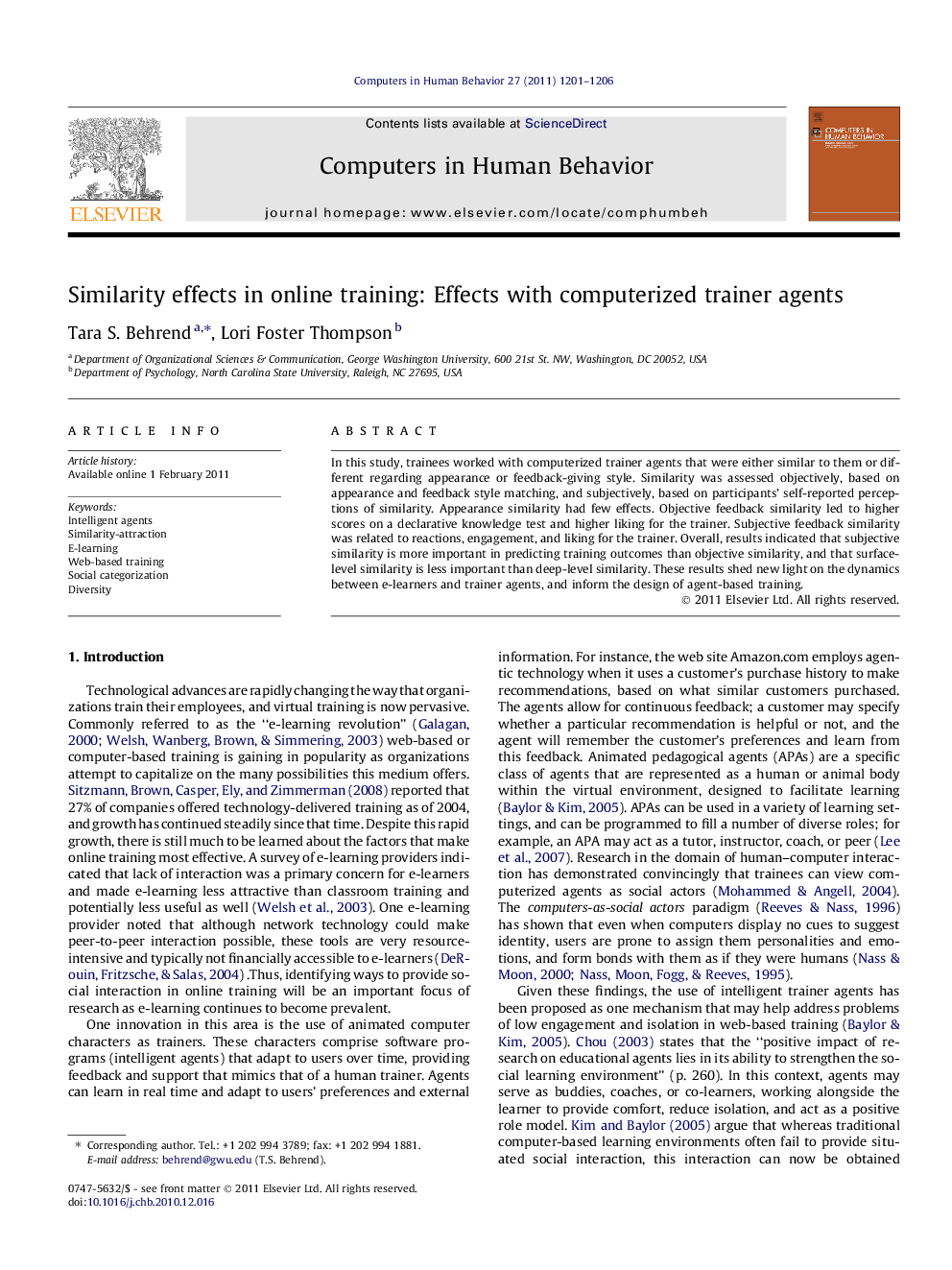| Article ID | Journal | Published Year | Pages | File Type |
|---|---|---|---|---|
| 351728 | Computers in Human Behavior | 2011 | 6 Pages |
In this study, trainees worked with computerized trainer agents that were either similar to them or different regarding appearance or feedback-giving style. Similarity was assessed objectively, based on appearance and feedback style matching, and subjectively, based on participants’ self-reported perceptions of similarity. Appearance similarity had few effects. Objective feedback similarity led to higher scores on a declarative knowledge test and higher liking for the trainer. Subjective feedback similarity was related to reactions, engagement, and liking for the trainer. Overall, results indicated that subjective similarity is more important in predicting training outcomes than objective similarity, and that surface-level similarity is less important than deep-level similarity. These results shed new light on the dynamics between e-learners and trainer agents, and inform the design of agent-based training.
